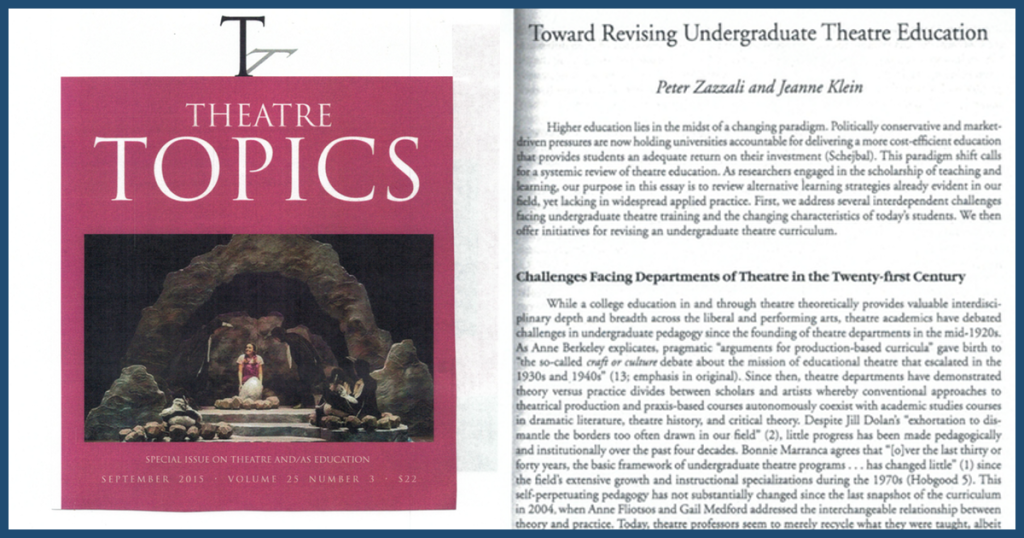
With 2016 upon us, thousands of applicants for the more than 250 BFA/MFA acting programs are preparing entrance auditions for January/February.
Presumably, they have their heart set on having a professional acting career consisting of a balance of stage and on-camera work. One wonders if these wide-eyed aspirants are aware of the grim statistics that lay ahead. Equity, for example, reports a weekly employment average of 13.3 % in 2014/15 with a median salary of $7,548. Moreover, the standard Equity actor worked 16.6 weeks this year, well below the 20-week minimum needed to earn health insurance. These figures are NOT an aberration, as similar statistics have reflected the job market for the past four decades. From an economic perspective, it simply doesn’t pay to be a stage actor, and frankly, SAG/AFTRA’s statistics are not much better.
So what do aspiring actors and those that train them do?
I was recently in Australia researching drama schools, of which there are merely four that specialize in preparing actors for the profession. If a student is talented and/or fortunate enough to gain admission to one of these elite institutions, her chances of having a successful career are reasonably high. While Australia’s population is roughly 13% of the US’s, I find it inviting that the country is not glutted with actor training programs. Indeed, the unspoken motto seems to be “not everyone is fit to have an acting career.” I would add that not everyone is meant to have an “actor’s life.”
Would it then be wise to start jettisoning our middling and lower tier BFA/MFA programs?
Probably not. First, such a proposal is preposterous on the grounds that these programs are established for better or worse and eradicating them would be a complicated mess inviting challenges that span from the legal to the political. It seems to me the issue has more to do with adjusting our curriculum and learning outcomes to meet the fluid contexts and demands of the profession. To that end, I would like to echo a suggestion from a recent Theatre Topics article that my colleague Jeanne Klein and I wrote calling for an entrepreneurial approach to actor training. As such, we contend identifying and marketing the skills that come with learning how to act, namely interpersonal communication, active listening, creative problem solving, imaginative reasoning, critical thinking, and ensemble-based collaboration towards building one’s career, enhancing one’s artistry, and relatedly, serving one’s community. At the heart of such an endeavor could very well be starting a theatre company, thinking of one’s career as a business, and/or seeking out alternative means of marketing one’s performance skills.

Thank you, Peter! Look forward to more!